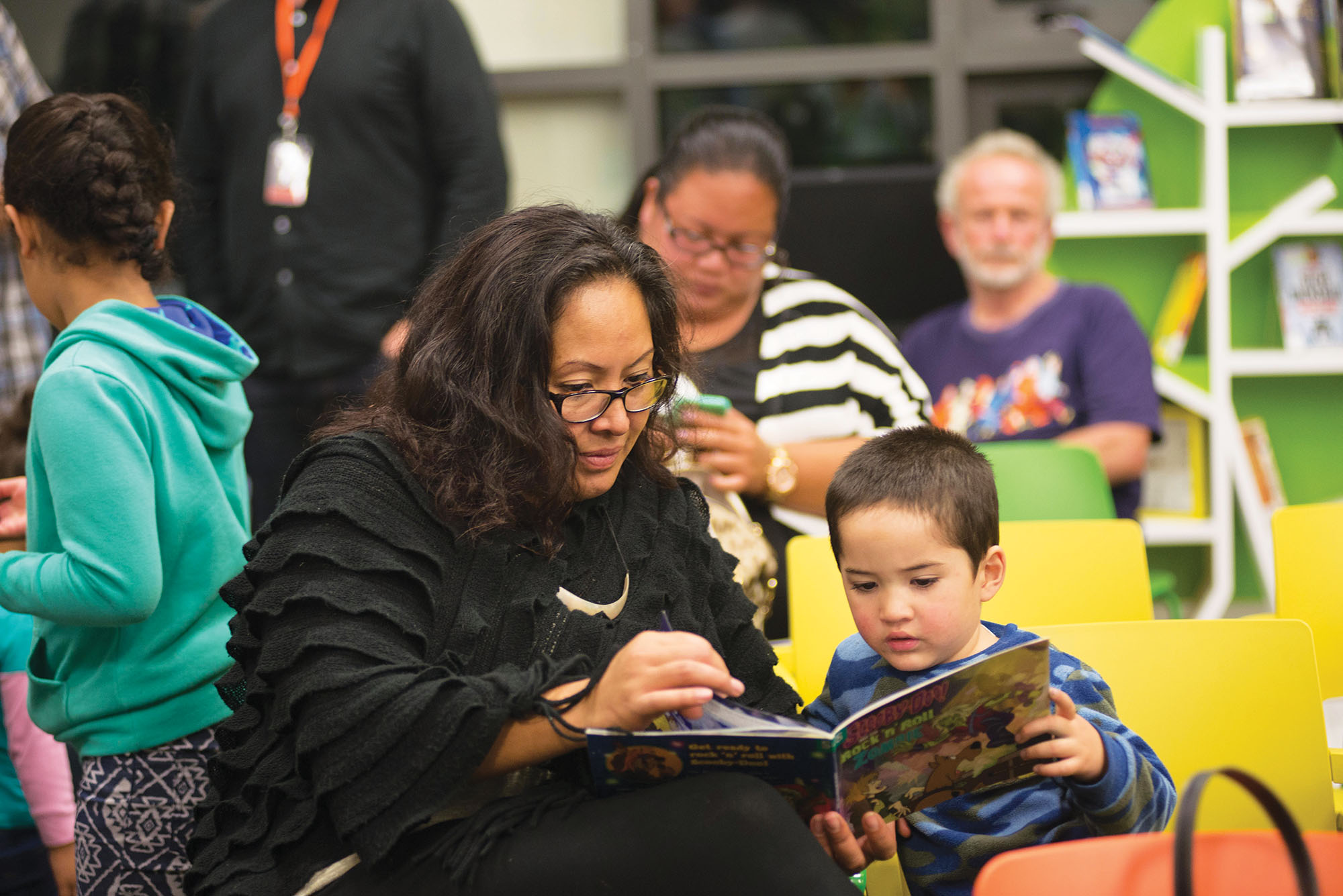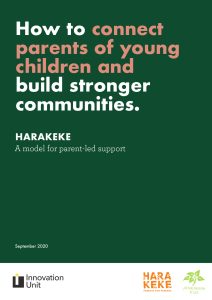
Harakeke
blog | Words Emma Scott | 23 Sep 2020
NEW REPORT: Building stronger communities through parent-led support
Innovation Unit has released a report presenting a model for parent-led support communities based on findings from Harakeke, a parent-led initiative designed to create stronger social connections between parents of children under five. The initiative set out to improve positive approaches to parenting and reduce social isolation by creating more opportunities for families in the community to meet and spend time together. In the report we set out the key features of the model that empower community members themselves to be leaders of change in their local areas.
Click the image to download the report.
The first 5 years of a child’s life, and the first 1000 days in particular, are foundational in their lifelong development and wellbeing. What happens to children in these formative years – their experiences, relationships and environments – profoundly shapes who they will become as they grow up. The relationship that parents and caregivers have with their children is one of the most important influencers in their development, moulding how they see and interact with the world around them. The relationship that parents have with one another; and with their whānau and friends too, also acts as a learning experience for children in how to communicate and behave.
Positive early life experiences, support from responsive adults and early development of adaptive skills, all help build resilience….It is much harder to alter the circuitry of the brain later in childhood. It makes sense both developmentally and economically to get things right the first time
Although filled with love and joy, parenting young children is hard work: many find it exhausting, relentless and often quite lonely.
We know that, in order to give children the best possible start to life, parents need to look after their mental, physical and emotional health in order to not just survive but thrive in their new role. But for some, support to focus on their wellbeing isn’t always easily accessible. Many parents now live further away from their whānau than they might have done as children, while changing work hours and patterns means the social support that often gets new parents through the toughest times isn’t always accessible.
For many, COVID-19 has exacerbated their sense of disconnection and reiterated the importance of having a strong local community of support around families.
With new evidence emerging about the link that social isolation of parents may have on their children’s health later in life, now is the time to invest energy in supporting families to develop positive, strong relationships within their communities that can have a lasting effect on the wellbeing of their children.
The hypothesis of Harakeke is simple: when you’re connected to and supported by other parents, you parent better. Social connectivity is especially important for families with low incomes. A lack of funds to access early learning experiences, get to the doctor, go to the shops or see friends can often lead to feelings of isolation and impact on parents’ ability to create positive, nurturing environments for their children. When we asked parents and families five years ago what would make a difference to support them to be the best parents they can be, the most common suggestions focused on reducing social isolation and increasing social support.
Parents share their experiences of Harakeke (previously called ‘S.K.I.P Waitakere’)
This report reflects on insights from parents about their experiences prior and after participating in Harakeke, including about their perceptions of parenting, its impact on their emotional wellbeing and the skills they have learned through leading Harakeke activities that have led to greater confidence and even new employment opportunities.
“Harakeke creates connections and now lifelong friendships. I never want to leave this community.”– Mother
Waitākere
As a result, the report articulates the components of the model that we have learned to be the most vital in encouraging and enabling families to band together and create regular opportunities to offer and receive support – opportunities that have real impact on parents’ lives.
Harakeke was designed to be very lightly led by Innovation Unit in response to communities’ perception of the pressure and hidden agenda added to initiatives when well-meaning organisations seek to work in their space. While we would love to influence how other organisations create opportunities for community leadership, our greatest hope is that changemakers from within communities will be inspired and feel better equipped to instigate and lead their own initiatives.
To learn more about Innovation Unit’s approach to building stronger communities in New Zealand, please contact Rachel Knight at rachel.knight@innovationunit.org
